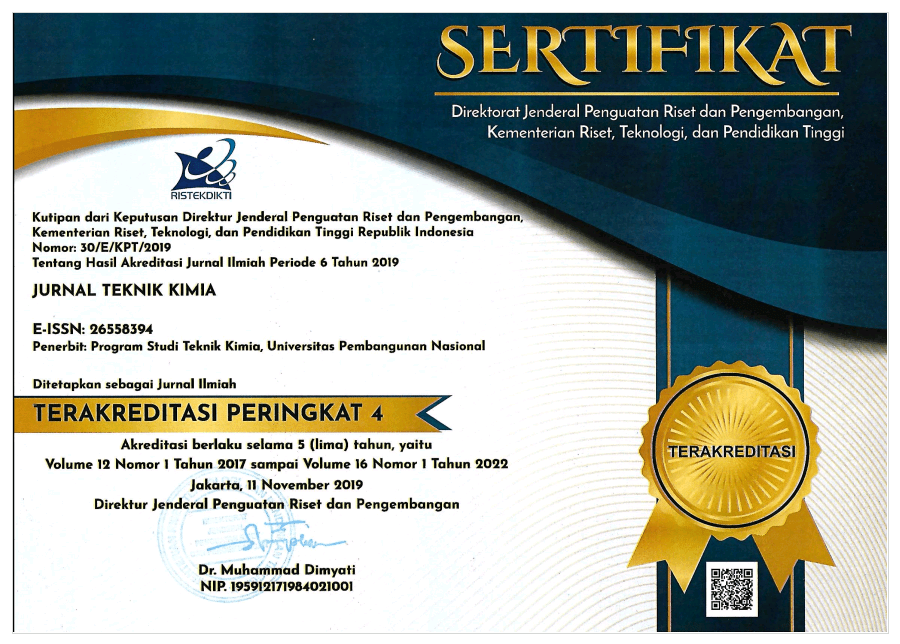ANIMAL FEED MAKING FROM TUNA FISH WASTE WITH FERMENTATION PROCESS
Abstract
Fish waste from the fish canning industry if not managed can lead to pollution of the stinging smellof pollution, because the decay process of fish protein. Also can be a source of human infectious diseasesare transmitted by flies.Waste fish have protein content ranging roughly 51-55%, except as a source of protein with good aminoacids, fish waste is also a source of minerals and vitamins. Utilization of fish waste can be processed intofish meal, which in turn is used as animal feed mixtures such as poultry, pork and fish food.This research aims to make animal feed from fish waste, using a fermentation process with the help ofmicrobes rumenansia. In order to produce a nutritious animal feed additives required high as Lamtoroleaves, corn and bran, with proportions varying between a mixture of raw materials compared to microbialfermentation and different time also.The best results from the fermentation of fish waste into livestock feed use of ruminant bacterial proteincontent of 51.16%, carbohydrate content of 23.91 %, and 6-day fermentation time with a ratio of rawmaterials and the number of microbes (1:0,7).

This work is licensed under a Creative Commons Attribution 4.0 International License.
Pusat Publikasi | Teknik Kimia | Fakultas Teknik (Gedung Giri Reka ) | Universitas Pembangunan Nasional "Veteran" Jawa Timur, Indonesia
Jln. Raya Rungkut Madya, Gunung Anyar Surabaya, 60294 Email : jurnaltekkim@upnjatim.ac.id








